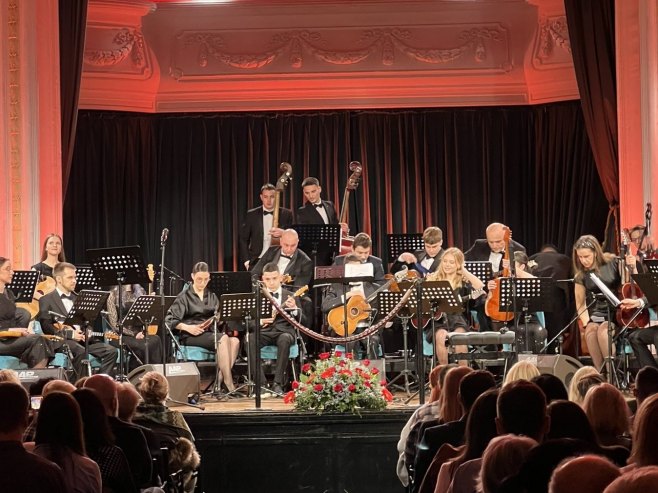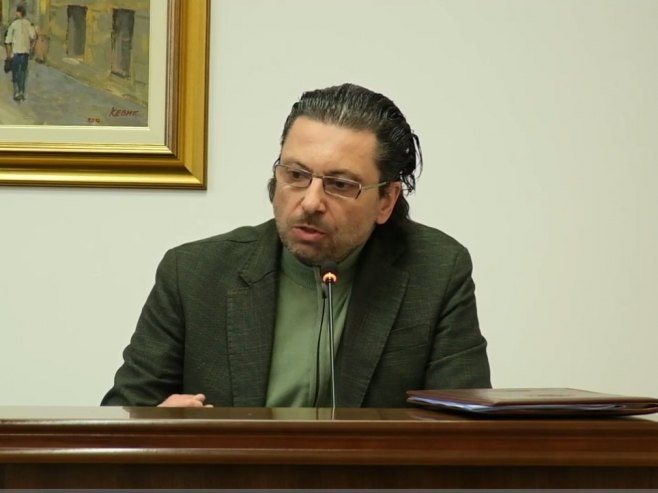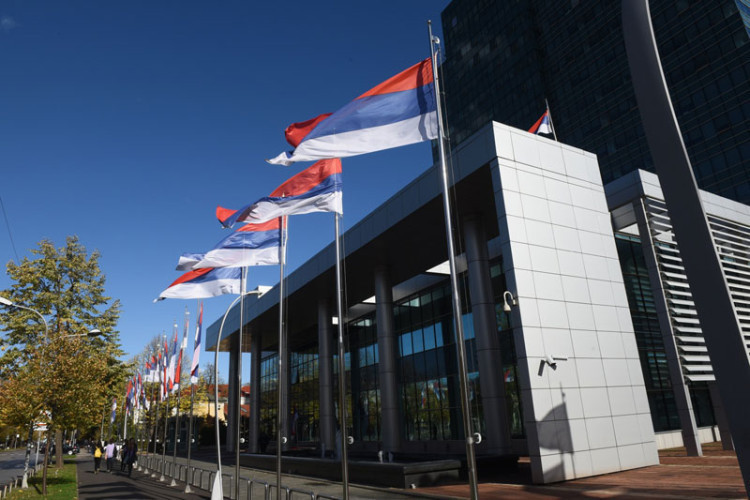Vladimir Đurić, Senior Research Fellow at the Institute for Comparative Law in Belgrade, spoke at the Scientific Conference “Dayton Peace Agreement – 30 Years of Peace and Stability” held in Banja Luka and organized by the Center for Socio-Political Research of Republika Srpska (CDPI).
“One of the most prominent theorists of political philosophy who conducted fundamental research into various models of democracy was David Held, who in his work Models of Democracy analyzed in detail all existing models of democracy, the differences among them, their advantages and disadvantages, as well as the conditions in which they are best applied. According to Held, the models of democracy represent different conceptions and methods of organizing a democratic society. These include Athenian democracy, Liberal (protective) democracy, Competitive elitism, Neoliberal democracy (New Right Democracy), Participatory democracy (New Left Democracy), and Consociational democracy,” said Đurić.
He noted that the most well-known author on the theoretical framework of consociational democracy was Arend Lijphart.
“According to Lijphart, four main elements characterize consociational democracy:
- The first essential element is the existence of a Grand Coalition. This coalition is formed by the strongest political parties, whose primary task is to protect the interests of the group they represent at the level of joint institutions of power. The Grand Coalition enables representatives of all significant groups to create optimal conditions for societal development and stability through cooperation and mutual respect.
- The second key feature is mutual veto rights, which exist to protect the vital interests of all coalition members—especially those who would be outvoted by a given decision—so that no decisions can be made if any coalition member deems them harmful to their group’s interests or if the required qualified majority has not been achieved.
- The third element is proportionality—a core principle in consociational states, meaning equal representation of all groups in political institutions and public services.
- A high degree of segmental (group) autonomy is the fourth essential feature, which allows each group to regulate its internal matters independently, particularly in areas such as education and culture. This autonomy can take a territorial form—based on subnational units—or a non-territorial form—common in unitary states,” Đurić explained.
He emphasized that BiH is a state where consociational democracy is implemented but also one where all four key elements have been violated in various ways—mainly due to foreign and partially domestic interference.
“The primary feature of consociational democracy is the cooperation of all significant group leaders through a Grand Coalition. The Constitution of BiH provides parity in forming executive power, as seen in the Presidency, which includes national and entity representation, and the Council of Ministers, which is always formed through ‘Grand Coalitions.’ However, there is no real cooperation in BiH within these coalitions. Often, one of the leading parties seeks to form a government with ‘opposition’ parties from other ethnic groups, which is frequently supported by foreign actors,” Đurić noted.
He cited the example of the Presidency of BiH, where the Croat member is often elected with Bosniak votes, raising serious questions about legitimacy and undermining the Grand Coalition principle.
“The principle of proportionality implies equal representation in political bodies and public services, as well as in the distribution of public funds. This has been seriously undermined. The first blow came from the Constitutional Court of BiH’s decision that all three peoples are constituent across the entire territory of BiH, including the entities. This effectively turned entities—originally defined by the sovereignty of the respective peoples (Republika Srpska for Serbs, and the Federation for Croats and Bosniaks)—into political-territorial units where powers must be redistributed and new institutions imposed, such as the House of Peoples and vice presidents,” he explained.
Another violation came from the Sejdić-Finci ruling by the European Court of Human Rights, which, according to Đurić, undermines the very basis of consociational democracy. Notably, Republika Srpska expressed readiness to implement the ruling, yet the absence of any response to its non-implementation raises concern.
The third breach of proportionality, he said, is seen in the method of electing the upper chamber of the Parliamentary Assembly—where Croat and Bosniak delegates are chosen solely by their respective clubs in the Federation, while all MPs in Republika Srpska can vote for Serb delegates, regardless of ethnicity.
“In the Constitutional Court of BiH, the imbalance continues. Of nine judges, four are appointed by the FBiH House of Representatives, two by the National Assembly of Republika Srpska, and the remaining three by the President of the European Court of Human Rights—provided they are not BiH citizens or from neighboring countries. The Court is declared independent, but with three foreign judges, it is impossible to prevent external influence,” Đurić emphasized.
He added that other breaches include the imposition of state-level judiciary and prosecution institutions—never envisioned in the Dayton Constitution. The High Representative imposed the Law on the Court of BiH, which initially mandated an equal number of judges from each constituent people. However, amendments in 2002 and 2004 removed this balance.
“BiH has two forms of veto rights: vital national interest and entity voting (‘entity veto’). Consensus-building and the possibility of blocking decisions are the only mechanisms for protecting entity interests. Segmental autonomy is implemented through the state’s complex structure. Still, this has been undermined through the erosion of entity authority, territorial integrity (e.g., Brčko District), and criminal liability for entity officials,” he said.
While the Constitution of BiH guarantees equality among the three peoples, it remains a document crafted externally.
“BiH functions as a quasi-protectorate of the international community (‘the collective West’), which is best evidenced by the presence of a High Representative and foreign judges—both unique institutions in global constitutional arrangements. The Constitutional Court has ruled that High Representative decisions cannot be reviewed, and that laws imposed by him are equal to laws passed by the BiH Parliament, which contradicts any basic principle of constitutional democracy,” Đurić stated.
Finally, he addressed how to resolve the situation.
“We must return to the original constitutional framework, meaning a review and revision of all imposed changes. But what is the realistic alternative to consociational arrangements in divided societies? Lijphart answered this question clearly: either the dissolution of the state or the forced assimilation of its segments. Since it is clear that Serbs reject assimilation, given the current stance of the international community and some domestic actors, the answer is very clear,” Đurić concluded.
Source: RTRS









